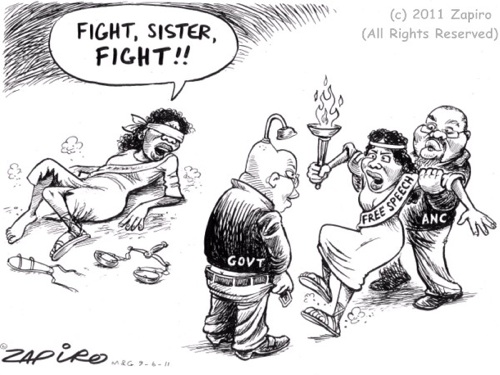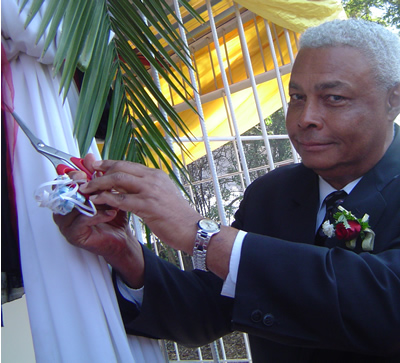Last week SW Radio Africa published the first in a six-part list of alleged CIO operatives. The original list contained names and addresses, while an amended list, published over the weekend only has names.
Responding to the public reaction to the list, SW Radio Africa Station Manager, Gerry Jackson wrote a statement saying: Experts say the CIO is the most powerful arm of ZANU PF’s security apparatus, the ‘brains behind the regime.’
According to the Council on Foreign Relations: ‘There is no public record of the CIO’s size, but it is thought to have thousands of operatives. Many Zimbabweans think the organization has a network of informers that extends into the Zimbabwean diaspora.
Jackson omits the part of the 2008 report, which states: Some analysts think the CIO’s ability to generate fear among Zimbabweans might exceed its true power.
Assuming the list is authentic, then what? How is releasing classified government information going to benefit the people of Zimbabwe?
In the article, SW Radio Africa discusses several people on the list and uses circumstantial and inconclusive evidence to link them to acts of violence and torture. Commenting on the article in NewZimbabwe Professor Tendi points out that the journalist concerned is hardly reliable: [he] once made an outlandish claim that UK-based public intellectual George Shire is Air Marshal Perrance Shiri’s brother. George suffered serious consequences, one of which was the desecration of his father’s grave, because of [his] fable.
I have several problems with SW Radio Africa publishing this list. First, it takes the CIO out of context. Gerry Jackson is right to assert that there is no legislative framework for the organization, but going by her statement one would be forgiven for thinking that the CIO was formed during the last decade to maintain ZANU PFs grip on power, but this is an institution that was inherited from the colonial government, and in fact Ian Smiths Chief of Intelligence, Ken Flower was retained by Our Dear Leader after Independence. The CIOs lack of accountability, methodology and terror-tactics are characteristics of the Rhodesian era. In doing research for this blog I came across this quotation about the operations of the CIO:
“In the mid 1970′s, in the most closely guarded secret operation of the entire Rhodesian war, the CIO embarked on a programme of chemical and biological warfare. Doctors and chemists from the University of Rhodesia were recruited by the CIO and asked to identify and test a range of chemical and biological agents, which could be used in the war against the nationalist guerrillas. By 1975 clinical trials were performed on human guinea pigs at a remote Selous Scout camp at Mount Darwin in northeastern Rhodesia. The CIO provided victims from their detention centres, choosing little-known detainees who had been arrested on various security charges. In the secrecy of the camp, the doctors administered various chemical and biological agents to the prisoners, experimenting with delivery systems and dose levels. The local CIO Special Branch disposed of the bodies in local mine shafts.”
The bodies discovered earlier this year might very well be some of the victims of this brutal and inhumane programme.
My second problem is that publishing a questionable list of CIO operatives does nothing to address the deficiencies of the institution, and may contribute in exacerbating the situation for Zimbabweans who are being terrorized by CIO operatives. The fact of where the list is placed, online and outside Zimbabwe does nothing to help those people.
Finally, the list was published as a reactionary measure, rather than as a revolutionary one. It is conceivable that anyone in possession of that list in Zimbabwe, having taken the trouble to download and print it for local distribution, would be charged with treason. If Munyaradzi Gwisai and the 45 can be beaten, tortured and held for weeks without trial based on conjecture and rumour, then surely there are worse evils in store for anyone who actually has State Secrets on their person. It was done without thought as to objectives and consequences, as though placing information in the public domain is the end, rather than the means to it.













